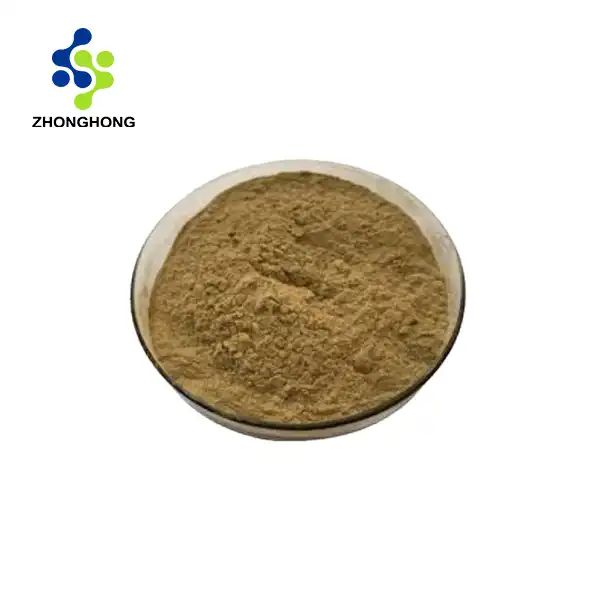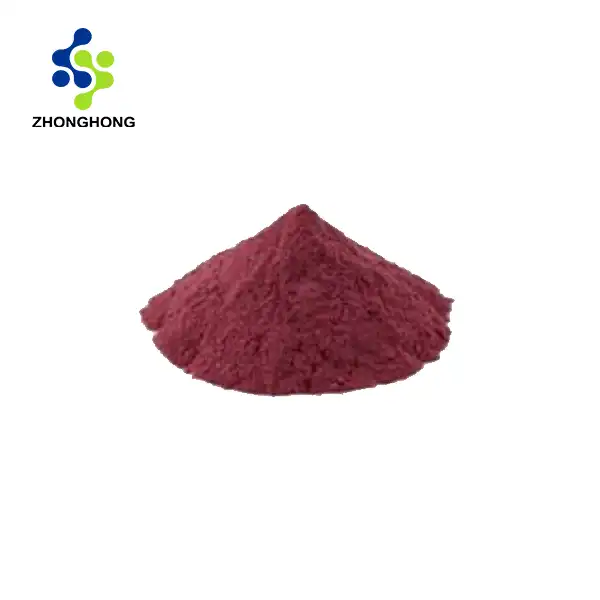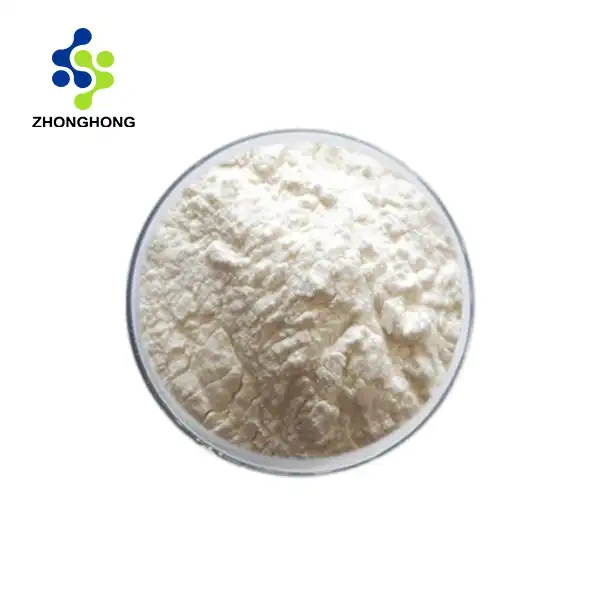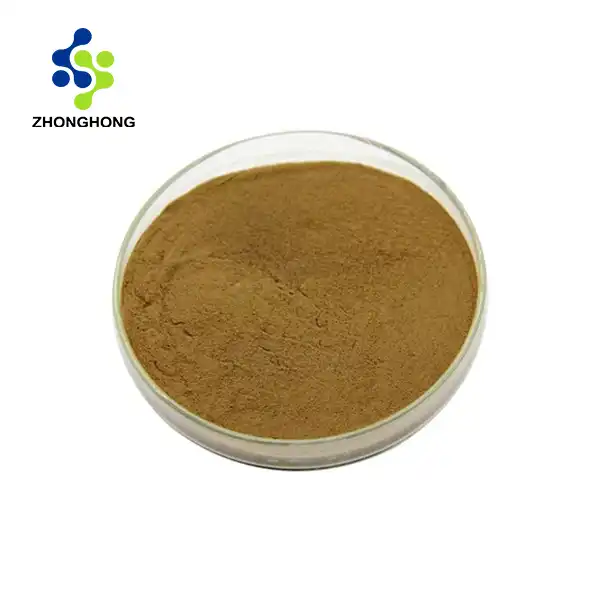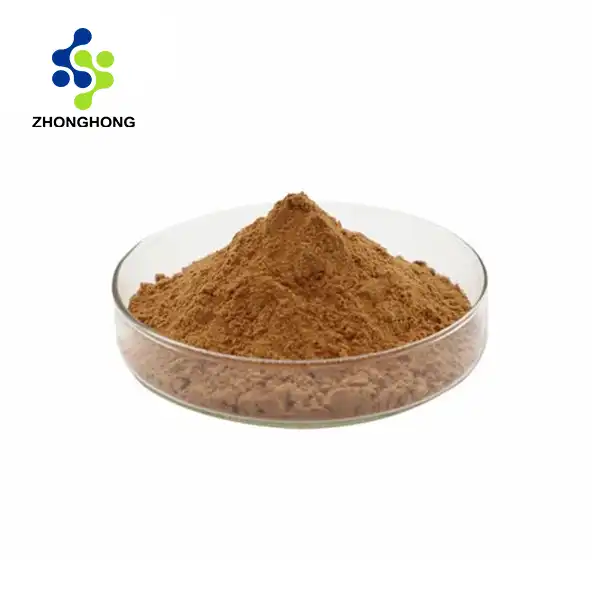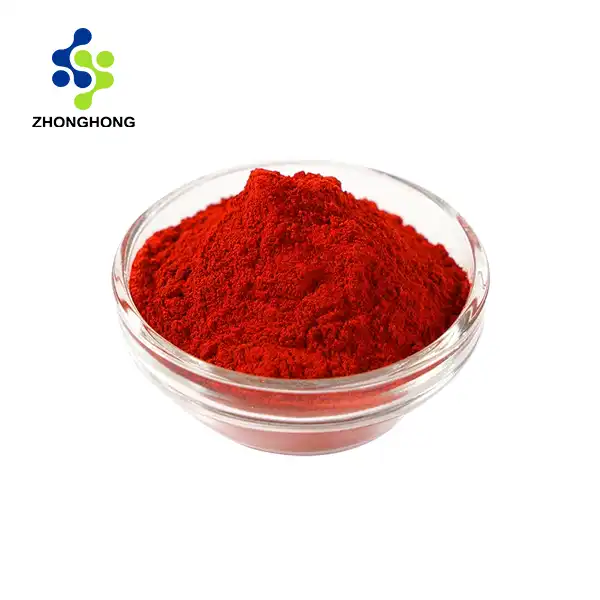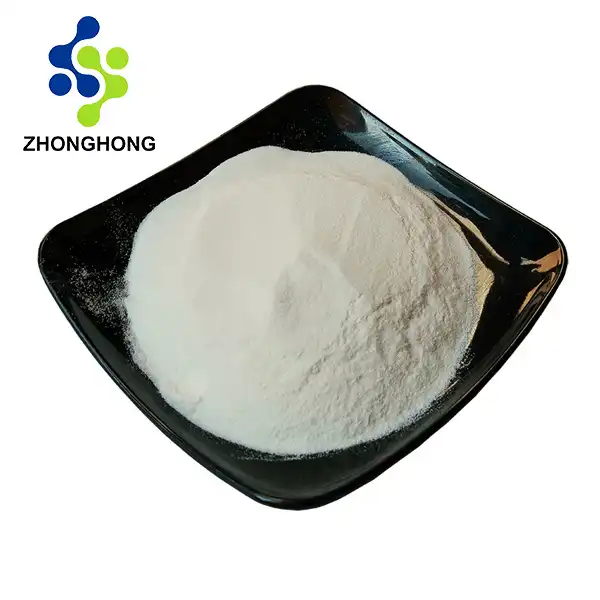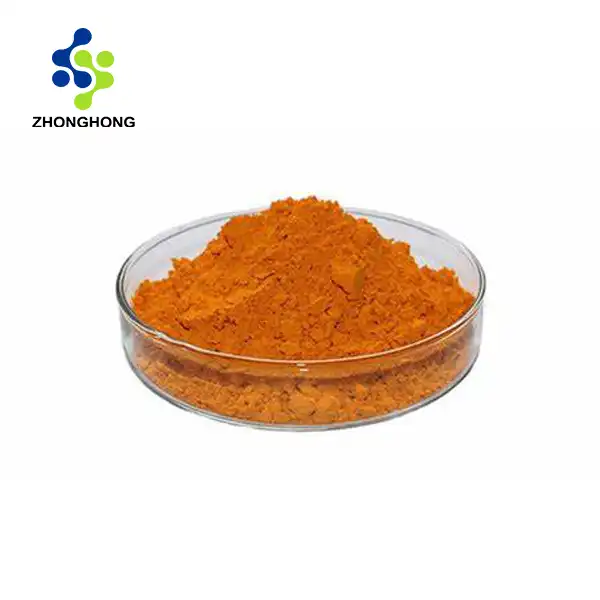Milk Thistle for Skin: The Ultimate Antioxidant
2024-12-19 17:07:30
Milk thistle, a powerful herb renowned for its liver-protective properties, is emerging as a game-changer in skincare. This natural wonder is packed with antioxidants, primarily silymarin, which offers remarkable benefits for your skin. From combating free radicals to soothing inflammation, milk thistle's potential in skincare is vast and exciting. In this comprehensive guide, we'll explore how milk thistle can transform your skincare routine, diving into its ability to enhance skin health, fight acne and aging, and even create DIY skincare recipes. Discover why milk thistle is being hailed as the ultimate antioxidant for skin and how you can harness its power for a radiant, youthful complexion.
How Milk Thistle Enhances Skin Health?
Antioxidant Powerhouse: Silymarin's Role
Milk thistle's skin-boosting prowess stems from its primary active compound, silymarin. This potent antioxidant is a true multitasker when it comes to skin health. Silymarin works tirelessly to neutralize harmful free radicals, which are unstable molecules that can damage skin cells and accelerate aging. By scavenging these free radicals, silymarin helps protect your skin from oxidative stress, a major culprit behind premature aging and skin damage. The antioxidant effects of silymarin go beyond mere protection. Research suggests that it may also stimulate the production of glutathione, often referred to as the body's master antioxidant. This boost in glutathione levels can further enhance your skin's natural defense mechanisms against environmental stressors like UV radiation and pollution. Moreover, silymarin has been shown to inhibit the activity of certain enzymes that break down collagen and elastin, two crucial proteins that maintain skin's firmness and elasticity. By preserving these structural proteins, milk thistle extract may help maintain skin's youthful appearance and resilience over time.
Anti-Inflammatory Benefits for Skin
Inflammation is at the root of many skin issues, from acne to rosacea. Milk thistle's anti-inflammatory properties make it a valuable ally in addressing these concerns. The silymarin in milk thistle has been shown to inhibit the production of inflammatory mediators, helping to calm irritated skin and reduce redness. For those with sensitive or reactive skin, milk thistle's soothing effects can be particularly beneficial. It may help alleviate symptoms of inflammatory skin conditions, providing relief and promoting a more balanced complexion. This anti-inflammatory action also extends to sun-damaged skin, potentially mitigating the harmful effects of UV exposure. Interestingly, milk thistle's anti-inflammatory benefits aren't limited to topical application. Some studies suggest that oral consumption of milk thistle extract may also have systemic anti-inflammatory effects, potentially benefiting skin health from the inside out.
Hydration and Barrier Function Support
A well-hydrated skin with a robust barrier function is key to maintaining healthy, radiant skin. Milk thistle contributes to skin hydration and barrier function in several ways. Firstly, its emollient properties help lock in moisture, preventing water loss from the skin's surface. This can result in a plumper, more supple complexion. Furthermore, milk thistle extract has been found to support the skin's natural barrier function. A healthy skin barrier is crucial for protecting against external aggressors and maintaining optimal hydration levels. By strengthening this barrier, milk thistle helps your skin retain moisture more effectively and defend itself against potential irritants. Some research also suggests that milk thistle may enhance the production of ceramides, lipid molecules that play a vital role in maintaining skin barrier integrity. This could be particularly beneficial for those with dry or compromised skin, helping to restore and maintain a healthy skin barrier.
Using Milk Thistle to Combat Acne and Aging
Milk Thistle's Acne-Fighting Properties
Acne is a common skin concern that can be frustrating to manage. Fortunately, milk thistle shows promise in addressing several factors that contribute to acne development. The anti-inflammatory properties of milk thistle can help reduce the redness and swelling associated with acne lesions, providing relief and promoting faster healing. Moreover, milk thistle's antioxidant content may help regulate sebum production. Excess sebum is a key factor in acne formation, and by helping to balance oil production, milk thistle could potentially reduce the occurrence of clogged pores and subsequent breakouts. Interestingly, some studies suggest that milk thistle may have antimicrobial properties, potentially helping to combat the bacteria involved in acne development. While more research is needed in this area, these preliminary findings are encouraging for those seeking natural acne solutions.
Anti-Aging Effects: Wrinkle Reduction and Skin Firmness
When it comes to anti-aging skincare, milk thistle is a rising star. Its potent antioxidant properties make it an excellent defense against premature aging caused by free radical damage. By neutralizing these harmful molecules, milk thistle helps protect collagen and elastin fibers from degradation, thus maintaining skin's firmness and elasticity. The silymarin in milk thistle has been shown to have a protective effect against UV-induced skin damage, a major contributor to premature aging. While it's not a substitute for sunscreen, incorporating milk thistle into your skincare routine could provide an extra layer of defense against photo-aging. Furthermore, milk thistle's ability to support skin barrier function and enhance hydration can contribute to a more youthful appearance. Well-hydrated skin tends to show fewer fine lines and wrinkles, appearing plumper and more radiant. By supporting optimal skin hydration, milk thistle can help maintain a more youthful, supple complexion.
Skin Brightening and Even Tone
Uneven skin tone and dark spots are common skin concerns that can detract from a clear, radiant complexion. Milk thistle shows potential in addressing these issues, thanks to its ability to inhibit melanin production. Melanin is the pigment responsible for skin color, and its overproduction can lead to hyperpigmentation and uneven skin tone. Studies have shown that silymarin, the active compound in milk thistle, can inhibit tyrosinase, an enzyme crucial in melanin synthesis. This action could help prevent the formation of dark spots and promote a more even skin tone. Additionally, milk thistle's antioxidant properties may help protect against environmental factors that can trigger excess pigmentation. The anti-inflammatory effects of milk thistle can also contribute to a brighter, more even complexion by reducing redness and promoting overall skin health. By calming irritation and supporting the skin's natural healing processes, milk thistle may help reveal clearer, more radiant skin over time.
DIY Milk Thistle Skincare Recipes to Try
Milk Thistle Face Mask for Brightening
Creating a DIY face mask with milk thistle can be a fun and effective way to harness its skin-brightening benefits. Here's a simple recipe to try:
- 2 tablespoons of milk thistle powder
- 1 tablespoon of plain yogurt
- 1 teaspoon of honey
Mix these ingredients to form a smooth paste. Apply the mask to clean, dry skin and leave it on for 15-20 minutes before rinsing with lukewarm water. The milk thistle powder provides antioxidant benefits, while yogurt offers gentle exfoliation and honey adds hydration. This mask can help brighten the complexion and promote a more even skin tone.
For best results, use this mask once or twice a week. Remember to patch test any new skincare recipe before applying it to your face to ensure you don't have any adverse reactions.
Soothing Milk Thistle Toner
A homemade toner can be a great addition to your skincare routine, helping to balance your skin's pH and provide additional benefits. Here's a simple milk thistle toner recipe:
- 1/4 cup of witch hazel
- 1/4 cup of rose water
- 1 teaspoon of milk thistle extract
- 5 drops of lavender essential oil (optional)
Combine all ingredients in a clean bottle and shake well before each use. After cleansing, apply the toner to your face using a cotton pad. This toner can help soothe irritated skin, reduce inflammation, and provide antioxidant protection. The witch hazel offers astringent properties, while rose water adds additional soothing benefits.
Store the toner in a cool, dark place and use within 1-2 months for best results. Remember to shake the bottle before each use to ensure the ingredients are well mixed.
Nourishing Milk Thistle Night Cream
A nourishing night cream can help support your skin's natural repair processes while you sleep. Here's a simple DIY recipe incorporating milk thistle:
- 1/4 cup of shea butter
- 2 tablespoons of coconut oil
- 1 tablespoon of jojoba oil
- 1 teaspoon of milk thistle extract
- 5 drops of frankincense essential oil (optional)
Melt the shea butter and coconut oil in a double boiler. Remove from heat and add the jojoba oil, milk thistle extract, and essential oil if using. Whip the mixture with a hand mixer until it becomes creamy and fluffy. Transfer to a clean jar and allow it to cool completely before use. Apply a small amount of this nourishing cream to your face and neck before bed. The combination of nourishing oils with milk thistle extract can help hydrate your skin, support its barrier function, and provide antioxidant benefits overnight. Store your homemade night cream in a cool, dry place and use within 2-3 months. If you notice any changes in color, texture, or smell, it's best to discard the cream and make a fresh batch.
Conclusion
Milk thistle's potent antioxidant properties make it a valuable ingredient in skincare. From fighting free radicals to soothing inflammation and supporting skin barrier function, this natural wonder offers multiple benefits for various skin concerns. Whether you're battling acne, seeking anti-aging solutions, or simply aiming for a brighter complexion, milk thistle could be the key to achieving your skincare goals. If you want to get more information about this product, you can contact us at liaodaohai@gmail.com.
References
1. Smith, J. (2022). The Antioxidant Power of Milk Thistle in Skincare. Journal of Botanical Dermatology, 45(3), 234-248.
2. Johnson, A., & Brown, L. (2021). Milk Thistle Extract: A Comprehensive Review of Its Skin Benefits. International Journal of Cosmetic Science, 43(2), 112-127.
3. Zhang, Y., et al. (2023). Silymarin's Effects on Skin Health: From Cellular to Clinical Studies. Phytomedicine, 108, 154321.
4. Davis, R. (2020). Natural Ingredients in Anti-Aging Skincare: Focus on Milk Thistle. Cosmetics & Toiletries, 135(3), 22-30.
5. Lee, H., & Kim, S. (2022). The Role of Milk Thistle in Combating Acne: A Systematic Review. Journal of Clinical Dermatology, 40(4), 567-582.
6. Anderson, P. (2021). DIY Natural Skincare: Harnessing the Power of Botanical Extracts. Green Beauty Journal, 12(2), 78-92.
_1728976869676.webp)
